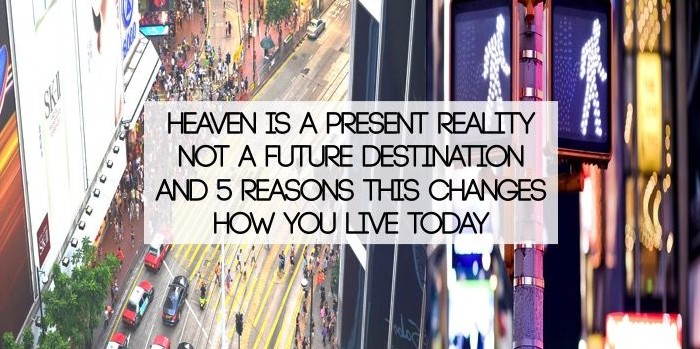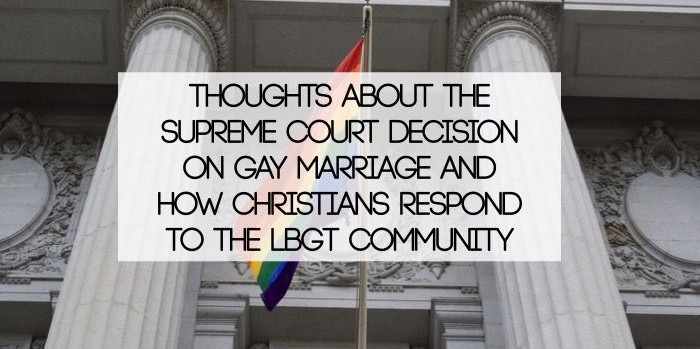[content_band style=”color: #fff;” bg_color=”#d61c1c” border=”all” inner_container=”true”]
I put together a FREE Advent Devotional to guide your Christmas season. The guide includes: one truth each day (several from this post are included), Scriptures related to the day’s truth, a reflection, a question or two to guide your day and a prayer. Don’t allow stress to consume “the most wonderful time of the year.”
Click the box below to sign up!
[/content_band]
Can I be real with you? Christmas season is stressful. Don’t get me wrong, I love this season. But it is exhausting. Most of my life runs in fifth gear, but during this season, I find myself punching the gas pedal begging my body for more juice.
Maybe you understand the feeling.
The unrealistic weight of expectations, combined with the constant demands for time and a materialistic anticipation for a moment that seems to disappoint, leaves me longing for “the most wonderful time of the year” to end.
But what if Christmas didn’t have to be this way? What if the Christmas season was a time to take our relationship with God deeper? What if this time of year was a season of renewal and not stress? What if (and this might be way out in left field) anticipation for the Christmas season reach unparalleled heights…and there was never a let down when the season ended?
It is absolutely possible. How? Here’s the answer…open more gifts.
That’s right, more gifts. You see, behind the Christmas trees, decorations, and parties is a baby. But not just any baby…a Savior. And when baby Jesus stooped down to this earth and took his place in a manger, he also opened a divine warehouse of gifts.
These gifts could forever change how we approach this season.
So, here are 25 game-changing gifts from God that will transform Christmas forever.
1.) God always, always keeps his promises.
This truth screams through the birth of Jesus. When God makes a promise, it will happen. And this truth is easy to forget because broken promises weave through the fabric of our lives. Our word to someone means less than the trash we throw in the dumpster.
But the baby in a manger is a reminder God is different. Every promise he makes is true. Rest in the promises of God.
2.) God can be trusted.
The list of people I trust with my feelings, emotions, and heart is really small. I can count them on two hands. Why? Life teaches us not to trust people. We can’t trust the motives of everyone. We can’t give our heart to everyone.
But God has never lied. All of his motives are pure. We can trust our entire self to God. God will not disappoint us. He will not betray us.
3.) Hope is real and alive.
Hope is the catalyst for faith. Without hope, reaching the finished line is impossible. Followers of Jesus must set their eyes on the living hope we have through Jesus Christ. Our hope is real.
4.) God is a responder, not a reactor.
The story of Jesus doesn’t begin in Matthew 1…it begins in Genesis 3. When sin entered the world, God knew Jesus was the only answer. And this is where I start scratching my head. If God knew the answer to sin was Jesus, why in the world did he wait hundreds of years to send him?
We can draw our own conclusions, but this truth can’t be ignored…God doesn’t react to situations. He responds. He doesn’t freak out. He doesn’t lose his cool. Reactors allow emotions to drive actions. Responders are driven by logic. Praise God he is a responder, not a reactor. Otherwise, we would all be in serious trouble.
[tweet_box design=”default”]Reactors allow emotions to drive actions. Responders are driven by logic.[/tweet_box]
5.) The promises of God come through patience.
God always keeps his promises. But obtaining the promises of God requires patience (Hebrews 6:12). God’s promises rarely come overnight. They are inherited through seasons of waiting and perseverance.
In a 4G, super-fast DSL world, God shows us good things aren’t microwaved. They take time.
6.) We should live everyday expectantly.
In Matthew 2, the Magi come to praise Jesus after being prompted by a star. Yes, the Magi were astute astrologists. But the Magi saw something different when this star appeared. And they saw something different because they were expectant. Their eyes were open.
How many days do we wake up expecting to see God? It is possible to miss out on amazing works of God simply because we aren’t expectant. Seeing God’s work requires a different focus and posture.
7.) God never forgets his people.
One generation passes. Then another. Egypt. The Promised Land. Judges. Kings. Captivity. Still no Savior.
I think it is fair to say some Israelites wondered if the Savior would ever come. They were human. There are times in my life when I wonder if God has forgotten about me.
Jesus’s arrival reminds us God never forgets about his people. He is present. He is working. Never lose hope. No matter how hopeless or helpless our situation, God never abandons us.
8.) Sometimes answers come in unlikely places.
“Alright, God. Here’s the gameplan. Let’s raise up a king greater than David. Far greater. At the height of his reign, we will send Jesus to be his first born son. He will become king, take over the world, and save us from our sins. It’s foolproof.”
“Wait…what? You’re sending Jesus through a poor carpenter and his fiancee…and he will be born in a bed of straw? I am not sure that game plan will work, God. Do we have a plan B?”
In typical God fashion, he flips human logic and reasoning on its head. No one would have expected the Savior of the world to make his grand entrance in a manger. But God’s answers come in unlikely places. They come in unlikely circumstances. God doesn’t need position titles, followings, bright lights, or stages to change the world.
God needs…God. He can and will show himself in the most unlikely of circumstances.
[tweet_box design=”default”]God doesn’t need position titles, followings, brights lights, or stages to change the world.[/tweet_box]
9.) God fulfills his purposes through broken, ordinary people.
Remember the time God used a perfect person to do something great? Me neither. It doesn’t happen. Repeatedly, God looks at the most lowly, least talented guy or girl in the line…and picks them. Mary and Joseph were righteous people. But they were poor. They had 9-5 jobs. Not rock stars. Not kings or queens. Just normal people.
And God rattled the foundations of the world through two ordinary people. Never buy the lie that God can’t use you.
10.) God is active in the world.
God is active. He is working. Right now, God is molding hearts. He is shaping lives. He is drawing people to himself.
Every action and circumstance, good and bad, prepared the way for Jesus. When we believe God is absent, it is not because God is taking a break. God is always working. We must open our eyes.
11.) God’s promises do not come without struggle and tragedy.
This is a common thread in God’s plan. On the heels of baby Jesus’s arrival comes one of the most tragic events in the Bible. King Herod, out of fear and anger, orders every child two and under to be killed (Matthew 2:16-17).
Tragedy is a core trait of this broken world. Our lives are filled with tragedy and difficulty. But allow the birth of Jesus to remind you struggle and tragedy are often the catalyst for great things.
12.) The gospel is for everyone.
Don’t miss this. One of the first groups notified of the Savior’s arrival were the Magi. Not the religious leaders. Not even a Jew. The Magi were Gentiles.
God is setting a new precedent with baby Jesus…salvation is for everyone. God’s people are not marked by an ethnicity. They are marked by a cross. The gospel is not an American product. And we need to spread the gospel to every human on earth.
[tweet_box design=”default”]God’s people are not marked by an ethnicity. They are marked by a cross.[/tweet_box]
13.) Nothing can destroy the plans of God.
From Genesis 3 to Matthew 1, powerful men and bleak circumstances threaten God’s plans. But when God initiates plans, they happen. No person can destroy God’s plans. No circumstance can erase them. God has great plans for our lives, and nothing will destroy those either.
14.) God loves us more than we could ever imagine.
God rescued us. And the depth to which he came to do this reveals the magnitude of his love. There are few things I would give my life to save. My closest family. Maybe a few more people I love like family. But certainly not every person. And absolutely not those who don’t like me.
Now consider the creator of the universe loving us so much he was willing to put on human skin…and be killed by men he created. Never lose sight of the love God shows us through the birth of Jesus.
15.) The same Holy Spirit that made the birth of Jesus a reality empowers Christians today.
Mary became pregnant through the Holy Spirit (Matt. 1:18). This same Spirit is the one that empowers us today. He guarantees our inheritance (Eph. 1:13-14). He breathes life into our wounded, sinful hearts. He gives us strength when we are weak.
16.) Our righteousness does not determine how God sees us.
The birth of Jesus reminds us God had to send a sacrifice. Without Jesus’s arrival, it might be reasonable to assume our righteousness determines our standing before God. But the Savior’s descension to earth should cause us to take a deep breath and remove the weight of morality and personal righteousness.
We could not earn it. Jesus did earn it. He lived the life we could not. It is his righteousness that gives us new life and salvation.
17.) Seeing God means leaving everything behind.
The shepherds in Luke 2 were told of Jesus’s birth, and immediately they went to see him. Now, catch this. Shepherds tended sheep, and it was a full-time job. Sheep are weak, vulnerable animals. These shepherds knew leaving their sheep meant leaving their livelihood.
But they didn’t spend hours debating between livelihood and God. Seeing God was far more important. And the same is true for us. When anything takes precedent over God, it hinders us from seeing God. We will not experience the fullness of God until we allow God to be THE option instead of AN option.
Is there something you need to leave behind to see God?
18.) Nothing is impossible to God.
Imagine an angel of God explaining the Savior’s entrance into the world. And to top it off, that plan includes you becoming pregnant…through the Holy Spirit. Think you would be skeptical? I would have a few questions. Mary did as well. In Luke 1:37, the angel proclaims a great truth about God. NOTHING is impossible with him.
The Christmas narrative reminds us God isn’t confined to our limitations and doubts. He can and will show his infinite power to the world through finite humans…for his glory.
19.) God’s plans are different from our plans.
Mary and Joseph had to pack up last minute to take a census in their hometown. They couldn’t find a bed for Mary to deliver Jesus. I would guess Mary and Joseph did not draw up the birth of Jesus this way. But God’s plans do not always match up with our plans. Trust God’s plans. Even if they seem crazy or ridiculous. He knows best.
20.) The greatest promises come in the most humble of situations.
There is a message here for everyone. In a culture of celebrities and popularity contests with Twitter followers or Instagram likes as metrics, God’s son makes his debut in a manger. No lights. No immediate anointing as king from men. No applause from thousands.
This is how God works. So, change the dirty diapers. Do the right thing when no one is around. Schedule lunch with someone that needs encouragement. God works in mighty ways through meaningless, mundane situations.
21.) God doesn’t need us, but he allows us to participate in his plans.
I have two boys, and I love them to help me around the house. Do I need them? Absolutely not. They actually hinder my productiveness and efficiency. But I want my boys to be part of the work I am doing. The same is true with God. And much more because God’s plans are eternal. It is a comforting truth that God allows imperfect people to fulfill perfect plans.
22.) God is our father, and we are his children.
Yes, we should recognize God as holy. Yes, we should have a healthy fear of God. After all, he created planets with his breath. But the birth of Jesus reminds us God is also our father. And he is a perfect father. He is always for us. He wants us to succeed. He loves us infinitely. He never leaves us. He is always good. He is our dad.
23.) This world is not our home.
Jesus did not come to earth and take permanent residence. He came down with a mission. He came down to fulfill promises. And once Jesus completed his mission, he went back home.
Jesus lays down a model for us. And Christmas season in America can pull us away from this model. Presents. Events and parties. Family gatherings. None of these are inherently bad.
But presents, events, and family gatherings become dangerous when they blur the model Jesus left for us. We are foreigners. This world is not home.
24.) God knows and understands our temptations and struggles.
Hebrews 2:18. Rest in this truth. It separates our Savior from every other god. He took on flesh, and he experienced every temptation and struggle. Is this not mind-blowing? The God of the universe knows my temptations. He knows my struggles. He can empathize with my suffering. Wow!
25.) Jesus will return again.
God is a promise keeper. And we can rest assured of this…Jesus will return. And when he does, it won’t be in the form of a little baby. It will be in the form of a mighty warrior. And his second coming will be the final one. No more sin. No more suffering. No more hurting. Eternal rest with God.
I pray for Jesus’s return every day. I hope you do as well. It is coming.
But until it does, we wait. And as we wait, we are expectant. We are hopeful. We are confident. The God who sent Jesus is able. And the struggles of this life will be eternally mutilated by the return of our Savior.
_________________________
Meditate on these truths. Think about them. Regardless, my prayer is you see something different this Christmas.
I love this season. I love to see my boys open presents. I love to see my family. But these things mean nothing compared to the love I have for my Savior. His faithful promises are waiting under the tree for us to open.
I love you all. To God be the glory forever! Amen.












